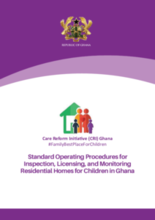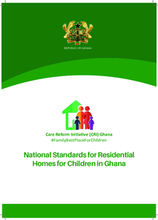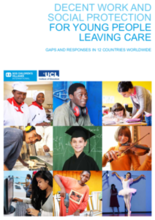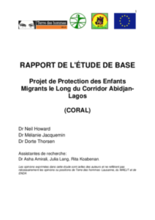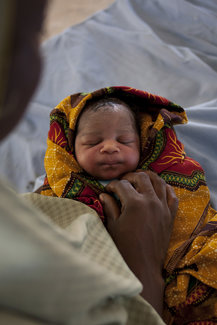

Displaying 241 - 250 of 634
UNICEF is seeking a Child Protection Specialist in Burkina Faso.
In this piece for Modern Ghana, Jeffery Amo-Asare calls on people to stop donating to orphanages in Ghana and start supporting foster care and other family-based care options for children.
UNICEF is seeking a Child Protection Specialist in Nigeria.
This is the first study in Ghana to explore child protection workers and parents’ experiences on participatory practices.
These Standard Operating Procedures (SOPs) for the inspection and monitoring of Residential Homes for Children (RHCs) in Ghana are intended to provide guidance to National, Regional and District DSW Officers on how to plan, conduct and report on RHC inspection and monitoring visits and how to enforce directives to either address gaps in compliance with the Standards and/or to close the RHC.
The revised Standards outlined in this document are aimed at strengthening the first National Standards for Residential Homes for Children (RHC) in Ghana, developed in 2010.
The aim of this report from SOS Children's Villages is to increase the knowledge and understanding of the needs and rights of young people ageing out of alternative care around the world, in order to inform strategies, policies and services to improve their life chances and outcomes through appropriate preparation for leaving care as well as after-care support.
The objective of this article is to present a portrait of the baby factory phenomenon in Nigeria. The precipitating factors that fuel the trade are discussed, and suggestions for an enduring approach to combat this crime are offered.
Le présent document constitue le rapport de référence pour le Projet pour la Protection des Enfants Migrants le long du Corridor Abidjan-Lagos (CORAL), conçu principalement en tant qu'analyse de situation susceptible d'orienter la programmation future du projet.

